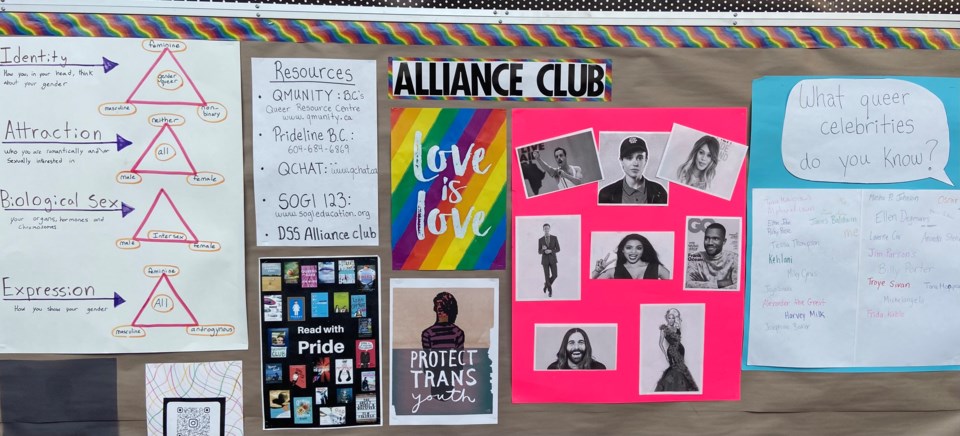Delview Secondary teacher Trevana Spilchen smiles while recalling how their LGBTQ students held hands in a circle as Journey’s Don’t Stop Believin’ played around them.
It was 2019, and the school was holding its first-ever Pride Dance.
“You could tell that the queer students there just felt really comfortable. I think it was pretty much all queer-identified students, and I know for myself, when I get to be in a room with just queer people, it’s just different,” they say.
That was the last time they were able to hold a Pride Dance – a couple years before it would become unheard of to hold hands with people who aren’t in your everyday bubble.
Some communities have been hit harder than others by the harsh realities of living through a pandemic. But people and communities who already face systemic oppression were and continue to be hit the hardest.
Among the impacted marginalized communities, Spilchen worried for their LGBTQ students.
“Maybe it’s not so great being a queer student at home, but they come to school and they’ve got friends, and they can go to the GSA and they can build those connections, right? And with COVID-19, it’s been really worrisome that some of those [queer] students don’t have any place to have connection, if they’re literally stuck at home,” they say.
As the Delta school district’s sexual orientation and gender identity (SOGI) inclusivity coordinator, Spilchen has had their work cut out for them during what has been one of the most challenging school years for teachers.
While in-person events have been limited, Spilchen has focused their efforts on creating resources for staff and administration to incorporate into their teaching and handling of certain situations.
Through leading the district’s SOGI curricular group, Spilchen and their colleagues have created one-page guides on LGBTQ books that are appropriate to be taught in classrooms.
“We develop resources so that teachers know which books are good, which ones are better than others, and also so they don’t have to be worried about teaching it in a way that’s not appropriate,” they say.
Spilchen also put together an entire guide on how to support gender-diverse students, which will roll out in time for September.
Delta Secondary School’s SOGI coordinator Anna Munns has worked for three years to build and maintain a sense of community among the LGBTQ students within her classroom, the school’s Alliance Club, and in the school itself.
Before the pandemic, they had weekly meetings where students felt safe enough to share their personal experiences and identities as they all sat in a circle of chairs. On the bulletin board that the club had posted in the main foyer, students were thoughtfully and honestly answering the interactive questions.
Everyone was seeming to really get it, and together, they had worked hard to get the club and the school to that point.
“It was just really, really getting to a good point, when everything shut down,” says Munns.
Though they still kept up with weekly meetings, there was no more sitting close together in a circle of chairs, and suddenly everyone had half of their faces covered by their masks.
“It has felt a bit more disconnected, so I’m really looking forward to next year – being able to bring that back – because I felt a real shift in the comfort level within the group,” she says.
Despite the changes, DSS’s Alliance Club continued to be active through the school year.
They handed out LGBTQ pins that they had made and posted educational signage around the school for Pride Week. They successfully advocated to have a Pride flag hung in their school, and they are continuing to push for a rainbow crosswalk and more gender-neutral bathrooms.
“Anna has been a bright spot as far as the district actually being able to keep a group going. I think Anna’s is the only school, literally, in the district that’s kept any kind of regularity to the GSA meetings this year,” says Spilchen.
Both Spilchen and Munns say that with each year that they continue to do this work, they encounter less and less pushback from others. And with each year, they get to be part of more and more moments that make the work so worth it.


